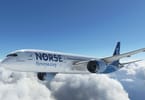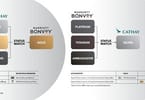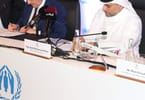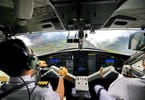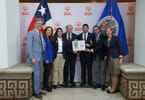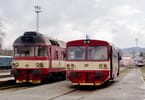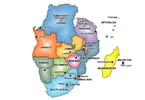From visiting friends and family to getting goods to market, Canadians, tourists, and businesses rely on a safe, secure aviation system. While safety is everyone’s top priority in air travel, the air travel experience is arguably a passenger’s next biggest concern. Air travelers and crew want a safe and pleasant flight experience, and so do air carriers. By providing a positive passenger experience through well-designed, research-vetted cabin systems and products that complement human behavior, companies can ensure safer, smoother operations while earning and maintaining customer loyalty.
To understand how people interact with the controlled air travel environment, a National Research Council of Canada(NRC) multidisciplinary team is studying human responses to the cabin environment and the impact of new design concepts and emerging technologies on air travelers and crew.
The NRC is in the third year of a five-year research collaboration with the Research & Technology team at Airbus Americas Engineering to improve the air passenger experience by studying and demonstrating the human impact of technology innovations. The research team is using the new NRC Centre for Air Travel Research and real people in simulated tests to evaluate and analyze innovative disruptive concepts, cabin air quality and environmental control systems, passenger comfort, and issues associated with boarding and exiting aircraft.
After carefully analyzing the data gathered during these comprehensive tests, researchers will be able to identify low-cost, high-return changes that can be applied early in the aircraft design process to the benefit of Airbus and its industry customers, affording them the opportunity to make evidence-based decisions that balance the safety and comfort of air passengers and crew with manufacturing and operational costs for next generation aircraft.
This research collaboration is due in part to Airbus’ Industrial and Technological Benefits (ITB) obligation associated with Canada’s Fixed Wing Search and Rescue Aircraft Replacement (FWSAR) program. Canada’s ITB Policy ensures that prime contractors provide business activities in Canada equal to the contract value. The FWSAR program is supporting approximately 2.5 billion CAD in ITB activities within the Canadian economy.
- The multi-disciplinary team in the National Research Council of Canada’s Centre for Air Travel Research includes a variety of expertise— specialists in physiology, psychology, industrial design, engineering, instrumentation, fabrication, and project management— that allows the team to fully explore the impact of new aircraft design concepts and emerging technologies on air travelers and crew.
- The Centre for Air Travel Research has five laboratories and can facilitate the study of security screening systems, airport navigation tools, virtual reality devices to address flight anxiety, and the specific needs of communities such as seniors or persons with disabilities.
- In addition to offering a realistic re-creation of an airport terminal, the Centre for Air Travel Research also boasts the Flexible Cabin Laboratory, complete with an A320 aircraft cabin that allows for the study of passenger flight experience, human vibration, and more.




